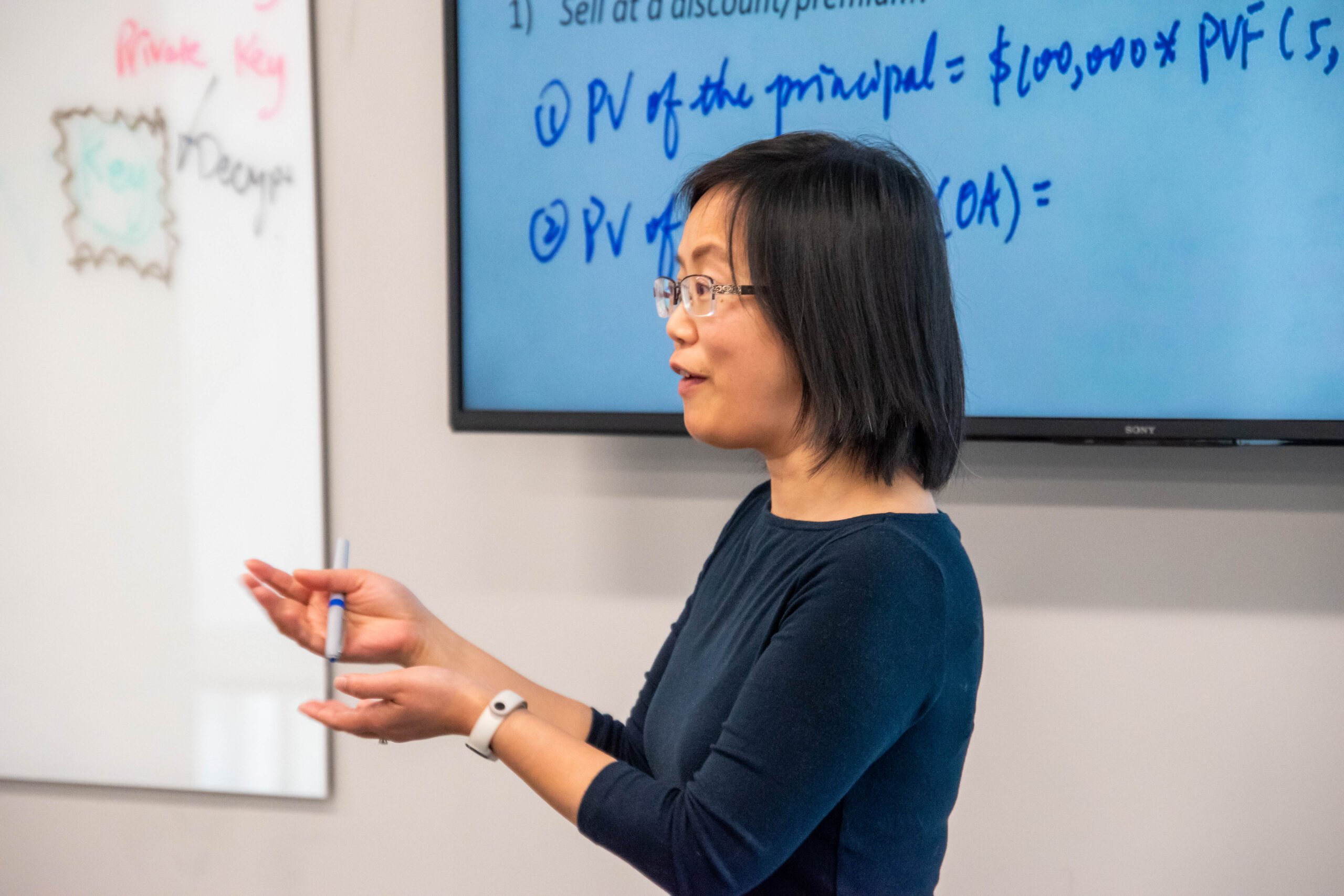Dr. Qianhua “Q” Ling, associate professor of accounting in the College of Business Administration, is one of the longest-serving members in her department; she came to Marquette after earning her Ph.D. from Oklahoma State University. She teaches both undergraduate and graduate classes.
Prior to that, Ling worked in Beijing for Occidental Eastern Inc., a subsidiary of Occidental Petroleum. She also worked for Ericsson Communication Systems, a Swedish multinational telecom company, out of their Beijing office.
Her research has been published in prestigious journals such as Review of Accounting Studies and Journal of Accounting, Auditing and Finance. In addition, Dr. Ling’s research on inventory costing has informed the best practices of the Financial Accounting Standards Board.
She sat down with Marquette Today to talk about the cultural differences between America and China and her advice to accounting students.
What is your proudest accomplishment as a professor?
As a professor, my students’ growth is my proudest accomplishment. I strive to create a welcoming learning environment. We work diligently together. We enlighten each other. I see sparkles in students’ eyes.
Students saying that they have learned a lot about accounting and life because of my classes or advising is so uplifting. Students grow not only professionally but also as people right here in front of me. Witnessing them thrive and excel has been incredibly rewarding. I am profoundly grateful that I had the chance to positively impact their life.
Talk a little bit about the business culture in China. How is it different than in America?
The biggest difference between the two is probably how you close a deal. In China, it involves a lot of alcohol consumption. People who are trying to get a contract need to socialize with contacts from the other company over alcohol. This practice is driven by a perception in the Chinese business world that if they can drink with you, they can trust you.
Do you find that the academic environment in America is different than in China?
Yes, it’s very different. The relationship that students have with professors is probably the biggest thing I had to get used to when I first studied in the U.S. Professors here are much more accessible than they were back in China when I was a student.
I remember in college, professors would come in and give a lecture, then you would hardly see them after class. Here, professors have office hours. You can also contact them via email and you’ll get a response.
In terms of grading, in China, you have just one or two exams that determine your grade. Here, you need continuous output: graded homework, quizzes and papers. There are more chances for you to show your knowledge of the subject as opposed to it all coming down to one exam.
Name some personality traits or behaviors that all successful accounting students share.
All successful accounting students are curious, take initiative and have a strong work ethic. If you have those qualities, you have a strong commitment to learning and that paves the way for significant achievements.
If you had 30 seconds to convince an undecided business student to study accounting, what would you say?
It opens abundant opportunities for you down the road no matter what career you end up in. Lots of our alumni can testify to it. Accounting is the business language. Studying accounting will equip you with a fresh perspective on every aspect of a business and this perspective is incredibly valuable.
What’s your best piece of non-academic advice for students?
I think it’s very important to dedicate time to look inward and reflect over the course of your college career. Everyone should invest the energy to understand themselves better. Having a clear picture of who you are and what you value will empower you to go further in your career and be the person you aspire to become.
If you’re interested in learning more about Graduate School of Management programs, please use this form to request information.



